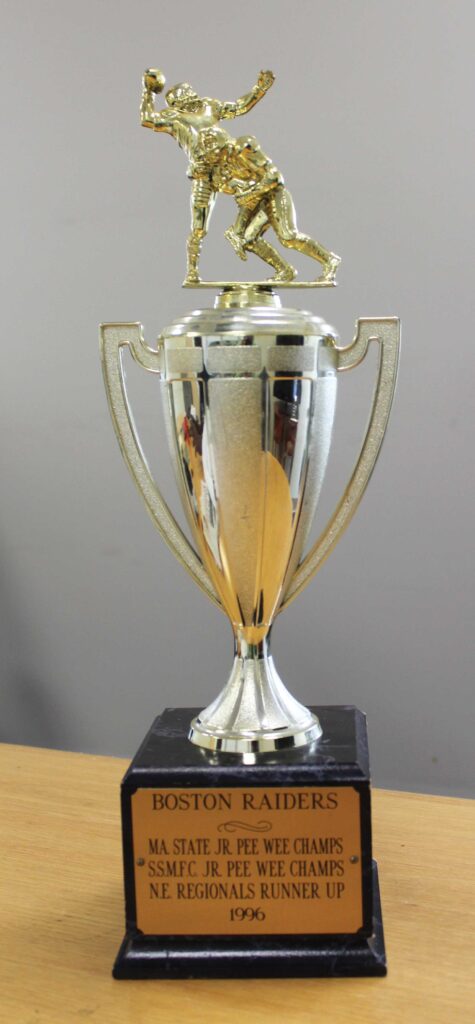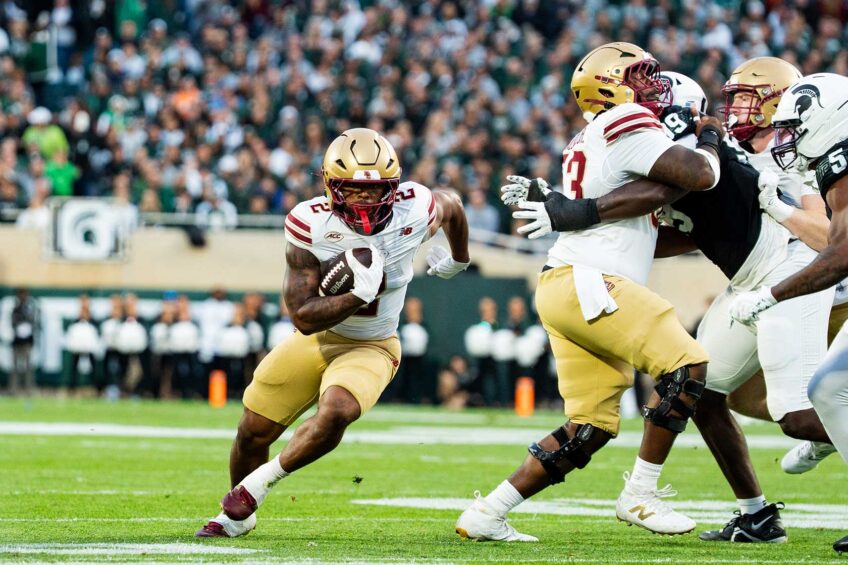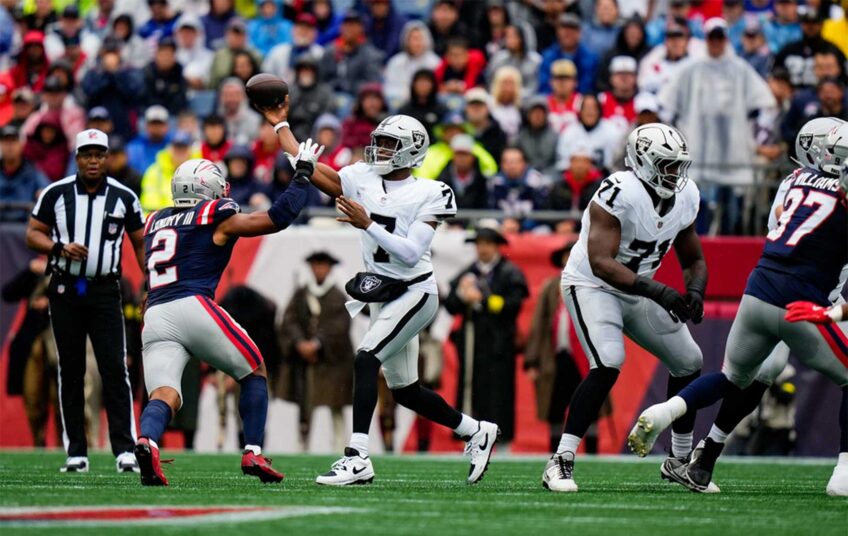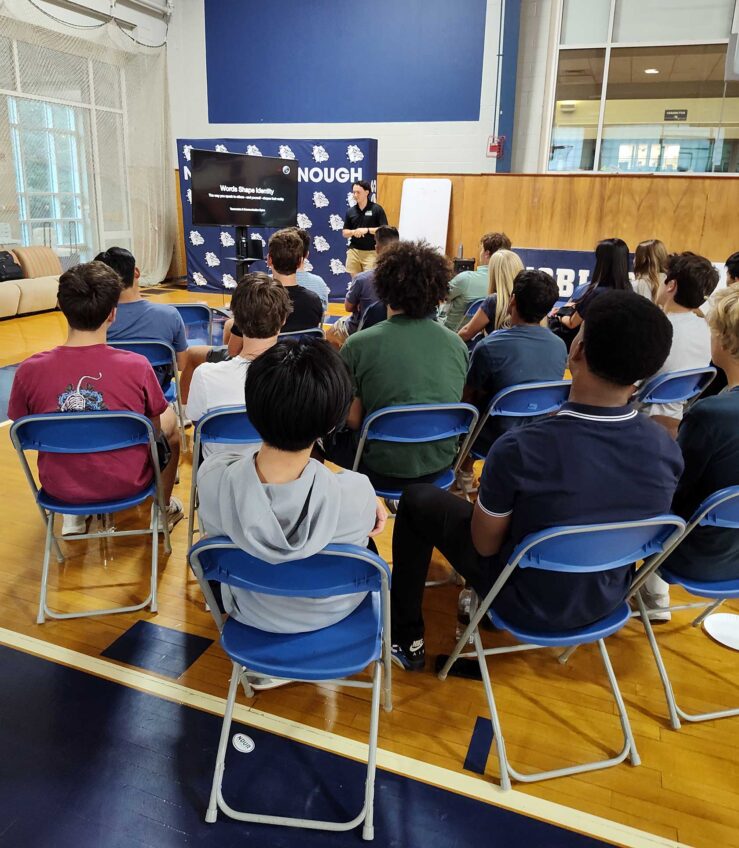A tribute to Harry G. Wilson III (1947 – 2019)
Founder and father of Pop Warner football in Roxbury

As autumn leaves fall gently to the ground, football fans salivate over the beginning of another season for their sport. But for this reporter, it is a time of reflection on the life of a man who influenced the lives of thousands of young men and women from the Roxbury area.
Harry G. Wilson III is the name. Pop Warner football was just a part of his claim to fame. A Marine veteran of Vietnam who saw a need stepped to the forefront, forming the Roxbury Raiders Pop Warner football program in 1975. He died in 2019.
In a recent interview, Harry’s older sister Carol Wilson Alkins spoke of her brother’s legacy: “Harry risked his life serving his country. Returning from Vietnam, he gave much of his life to his family and community. He raised generations of young Black men and women while building the Roxbury/Boston Raiders to national prominence in Pop Warner Football. His wife Linda, who died within a year of the passing of her childhood sweetheart and beloved husband, and brother Dennis, the Hall of fame Basketball Coach at Madison Park High School, stood shoulder to shoulder with Harry through good and far too many harsh, difficult times in the history of the Raiders. The entire Wilson family and extended members throughout the community worked tirelessly to raise money for Raiders teams to compete at the National Pop Warner Championships in Florida.”
His brother Dennis, historian of the Raiders, said, “My brother Harry used football to build character, discipline and strong respect in young boys and girls. He used his Marine Corps training to mold the Raiders into a championship enterprise.”
“My brother Harry was not a political guy,” Dennis continued. “He did not like dealing with the red tape, minutiae and bureaucratic hassles. He just loved kids and impacting their lives. He was famous for saying, ‘We’ll find a way — we’ll do it out of our own pockets.’ And that meant tremendous sacrifices to his family. Harry often would be seen transporting players from practices to their homes in his vehicles, spending his money to feed and equip them to play this game he fanatically loved. His house was the Raiders Clubhouse, with his wife Linda feeding Raiders players, family and neighborhood kids.”
Why did he do it?
Because his mission was “to make champions of these young people on and off the field.”
A look at the Boston/Roxbury Raiders chronology shows a record of glittering success.
How it began
It all started when a frustrated father of four — three biological, one adopted — did not like how his first two sons were taught the game in the Mattapan Pop Warner Football program. So he and his younger brother Dennis co-founded the Roxbury Raiders.
Dennis points out that older brother Harry deserves the bulk of the credit for forming the Raiders.
“My brother’s life consisted of God, family, community, friends, the Marine Corps and football,” Dennis said. “We used our mortgage and rent money to start a two-team program. We did not tell our wives, Linda (Harry) and Gladys (Dennis). They not only forgave us, but became vital participants to the Raiders’ success. God bless them both.”
“And God bless so many other people who made significant contributions: David Lopes, board president, was instrumental in getting funding for the ‘Raider-dome’ at Harambee field,” Dennis continued. “Teresa Roberts, Raiders team secretary. Wilma Summerall, Vivian Searcy, Deseree Samuel, Roosevelt Robinson, and far too many others to name, but you know who you are. And if you know anything about the Raiders tradition, you know that my brother Harry and I cherished every person who worked tirelessly for the Raiders organization. Harry thanked all the ‘unsung heroes’ every chance he could.”
Records of the Roxbury and Boston Raiders
Roxbury Raiders (until 1990)
Champions
• 1975-1980
• 1982-1985
• 1988-1990
Boston Raiders
• Super Bowl participants 2000, 2004, 2005
• New England Regional Champions 2000, 2004, 2005, 2008, 2009 (Pee Wee division)
• Massachusetts State Champions 1996, 1998, 2000, 2001, 2004, 2005
• Bay State League win-loss record 205-21
The Raiders grew from a two-team program with A and B squads to a five-team operation with A, B, C, D and E programs, 175 players and more than 75 cheerleaders. The cheerleading squad grew from its humble beginnings in the two-team program as the “Silver Stars” to its current title of “The Lady Raiders.”
As the program grew and joined the national Pop Warner organization, the founding theme remained the same: “to provide a healthy outlet for as many children as possible,” as voiced by Harry Wilson throughout the Raiders’ existence.
From the Roxbury Raiders, a five-team community league, to national recognition as the Boston Raiders, the Wilson brothers carved out a legacy of success.
Among notable players to wear the team’s silver and black uniforms over the years: Billy Brooks, wide receiver for the Indianapolis Colts; Cherron Kerr, who scored five touchdowns to lead the Raiders to their first National Superbowl appearance; George Barnwell, tried out with the New England Patriots; Lloyd Mumford, star quarterback/safety and adopted son of Harry Wilson; and the late Darryl Williams, who was shot and paralyzed in 1979 while standing on the sideline of a high school football game in Charlestown. The shooting drew national headlines as it spotlighted racial unrest in Boston. Williams would spend the rest of his life in a wheelchair.

A plaque honoring Harry G. Wilson III and Dennis G. Wilson at the Harambee Park
football field. PHOTO: COURTESY DENNIS WILSON
“And we did all of it with the help of great people, solid fundraising and a determination to see our children have shining moments in their lives,” said Harry Wilson before he died in 2019. Linda, who had been with Harry since their teenage years, died seven months after her husband.
Dennis left the Raiders in 2012, citing philosophical differences with his brother.
“We were just two strong-willed, stubborn men who had different views,” he said. “It was best that we parted for our mental health and that of our loving wives and family members. I went my way. He went his way. But we never stopped loving each other. And our families remained close to the day that Harry and Linda passed from this life.”
A different group of people run the Raiders organization today. Dennis Wilson quickly points out, “Their mission, purpose is different from my brother Harry’s. I just hope that they remember who built the Raiders football program and what he always preached: ‘It should always be about our children.’”
Harry and Linda Wilson have gone from this life, but their impact on generations of young Black men and women will be cherished for years.
I once asked Harry how he wanted his epitaph to read. He answered: “That I was a warrior in God’s army.” He, Linda, Dennis, and everyone who helped build the Roxbury/Boston Raiders legacy can make the same claim.






